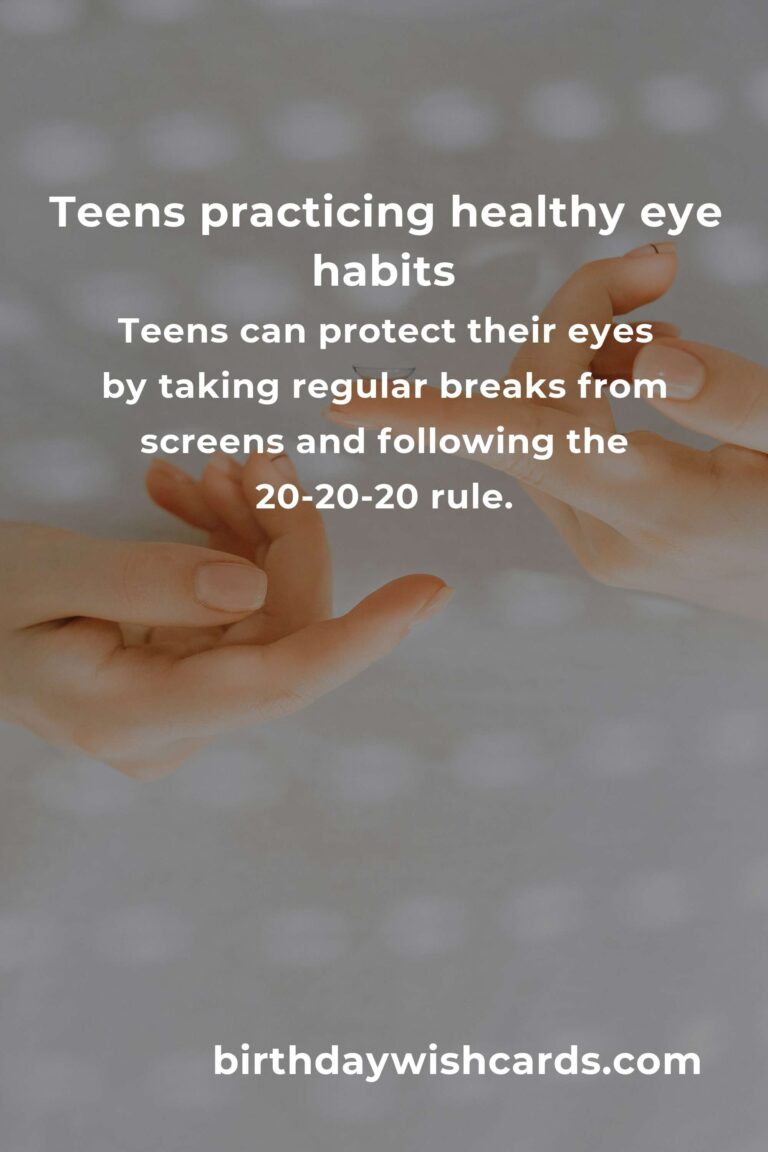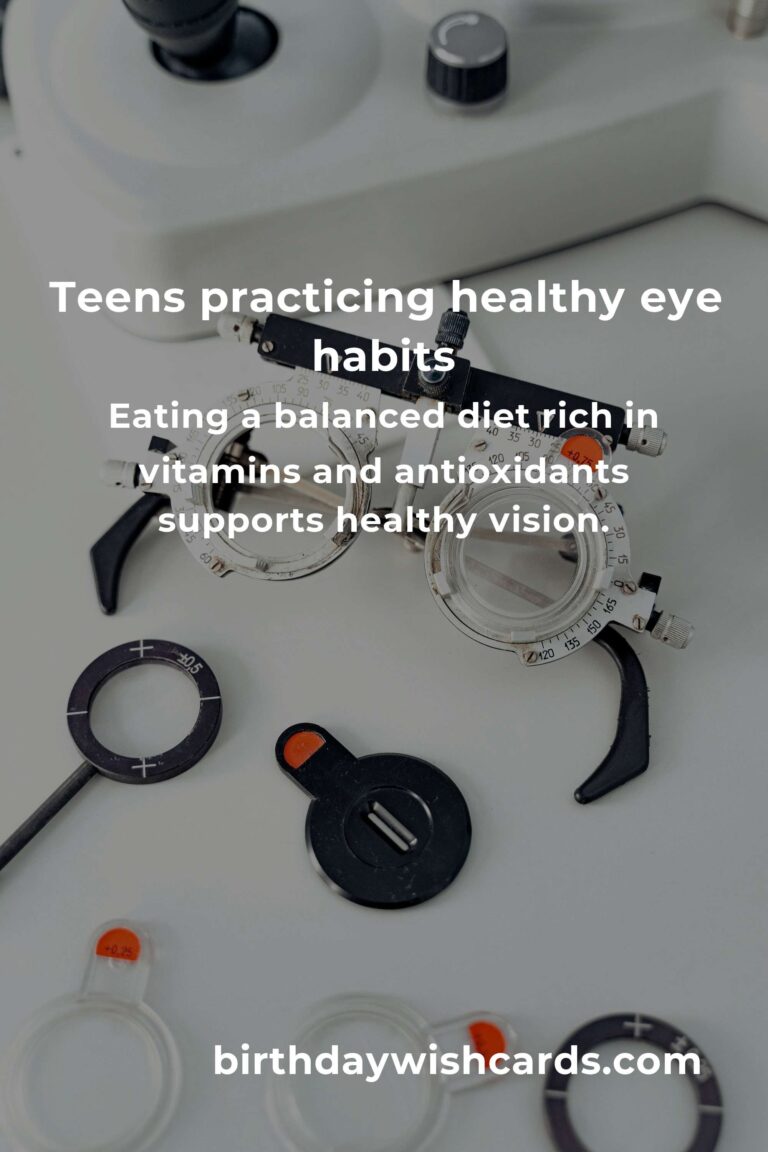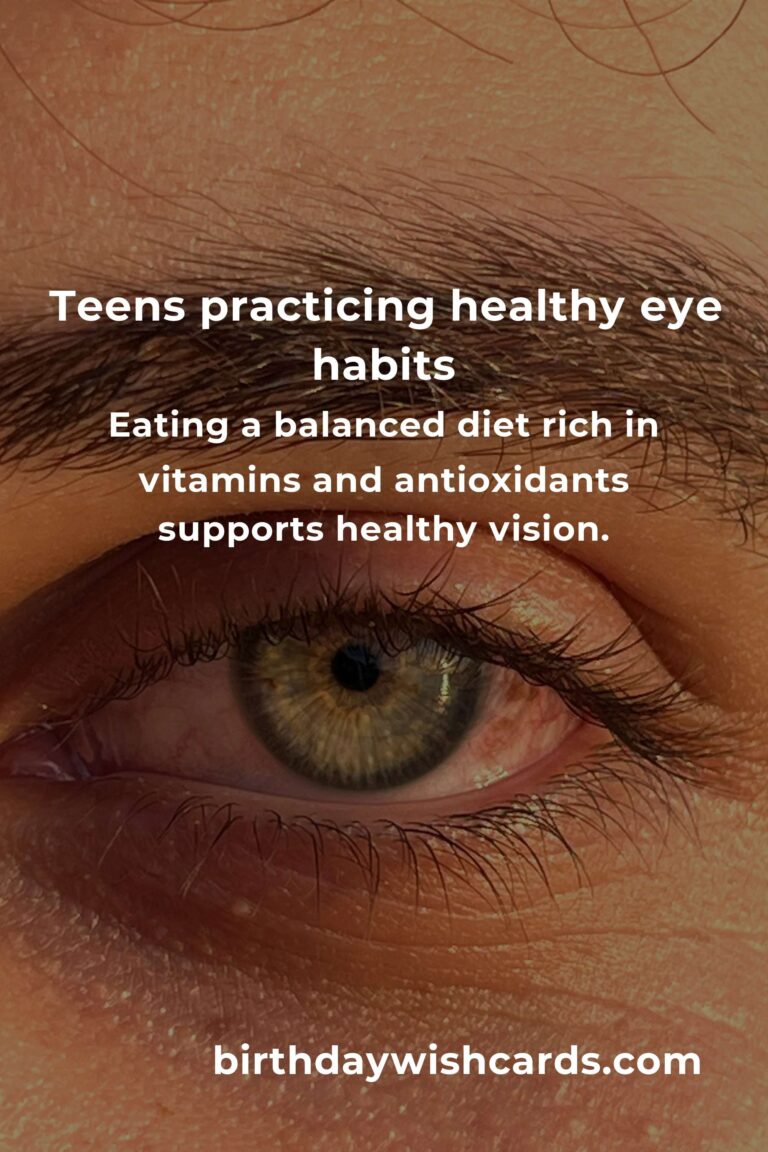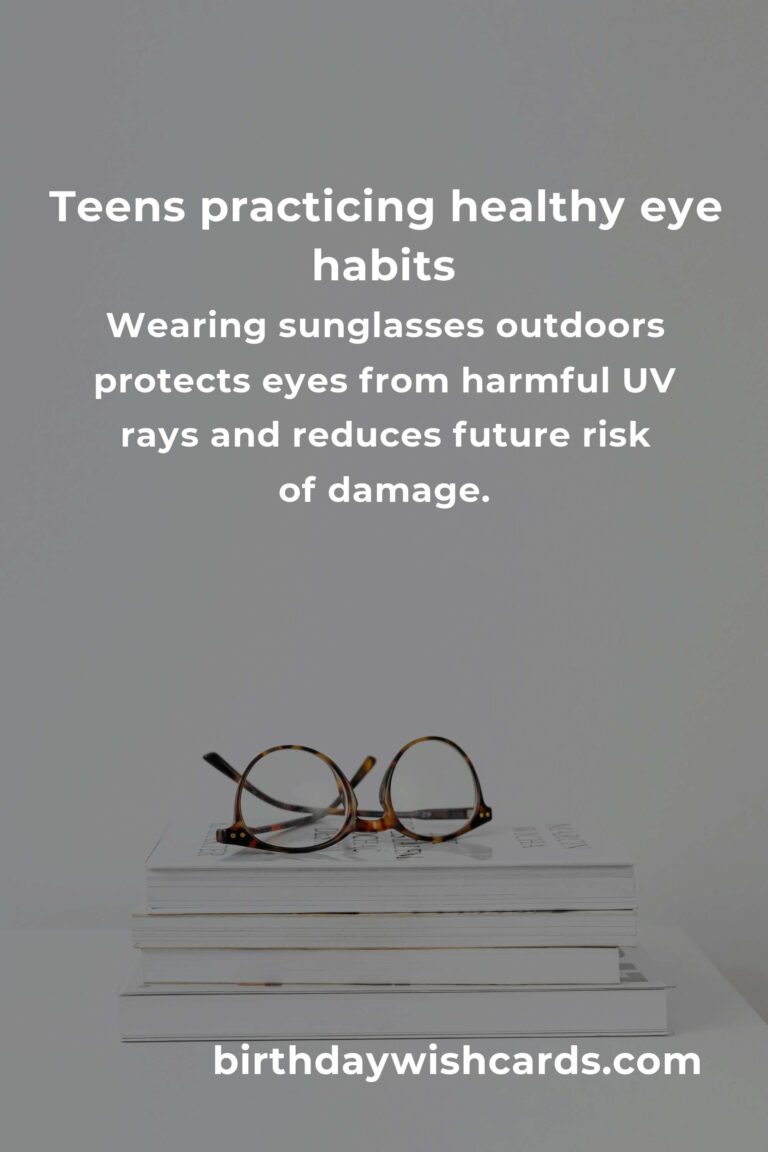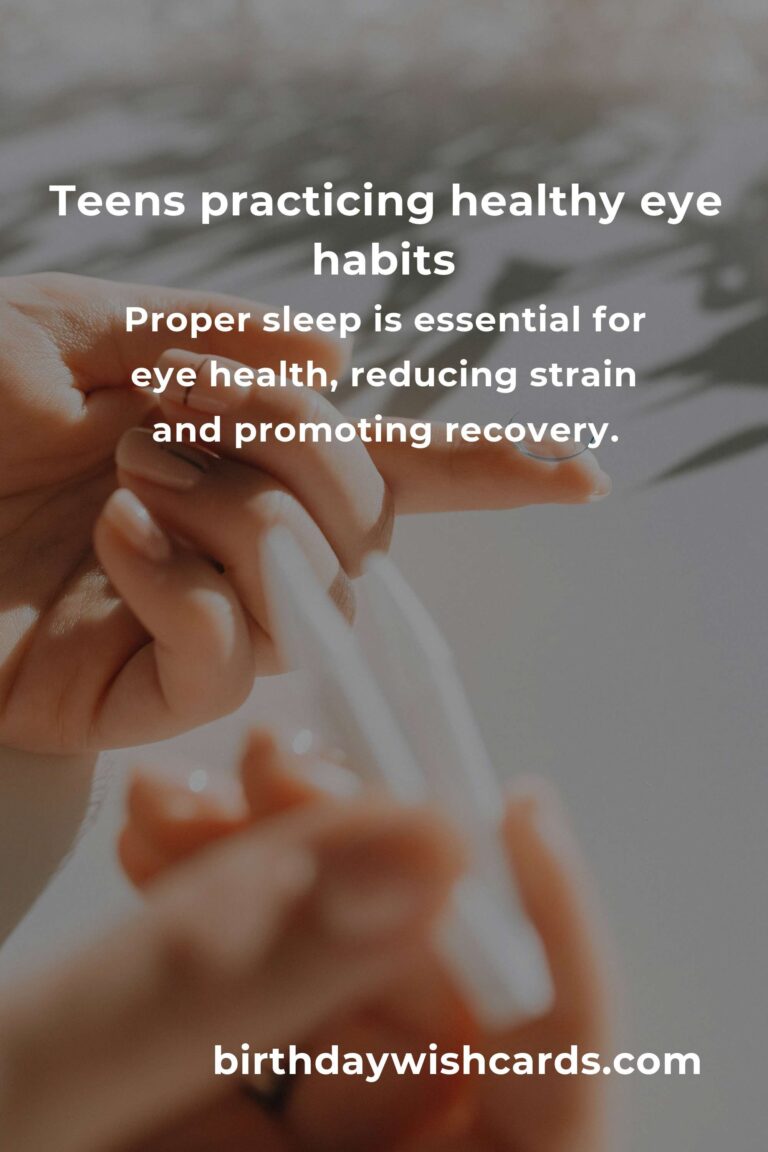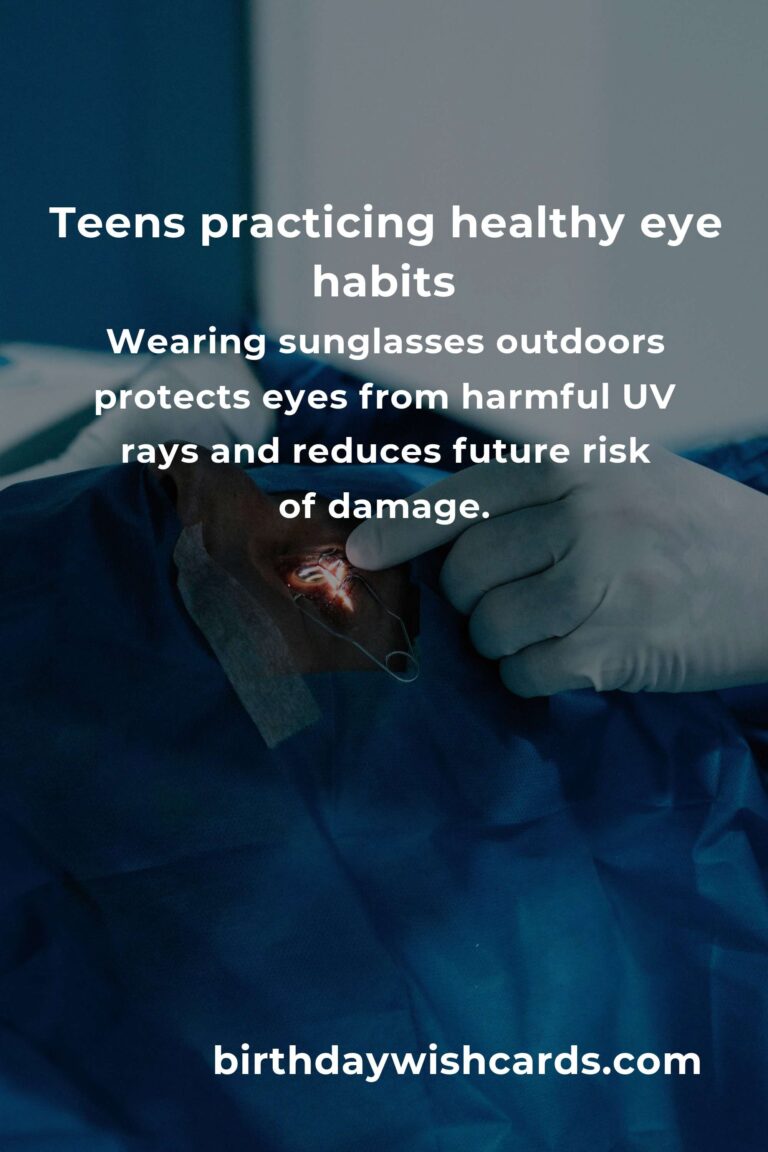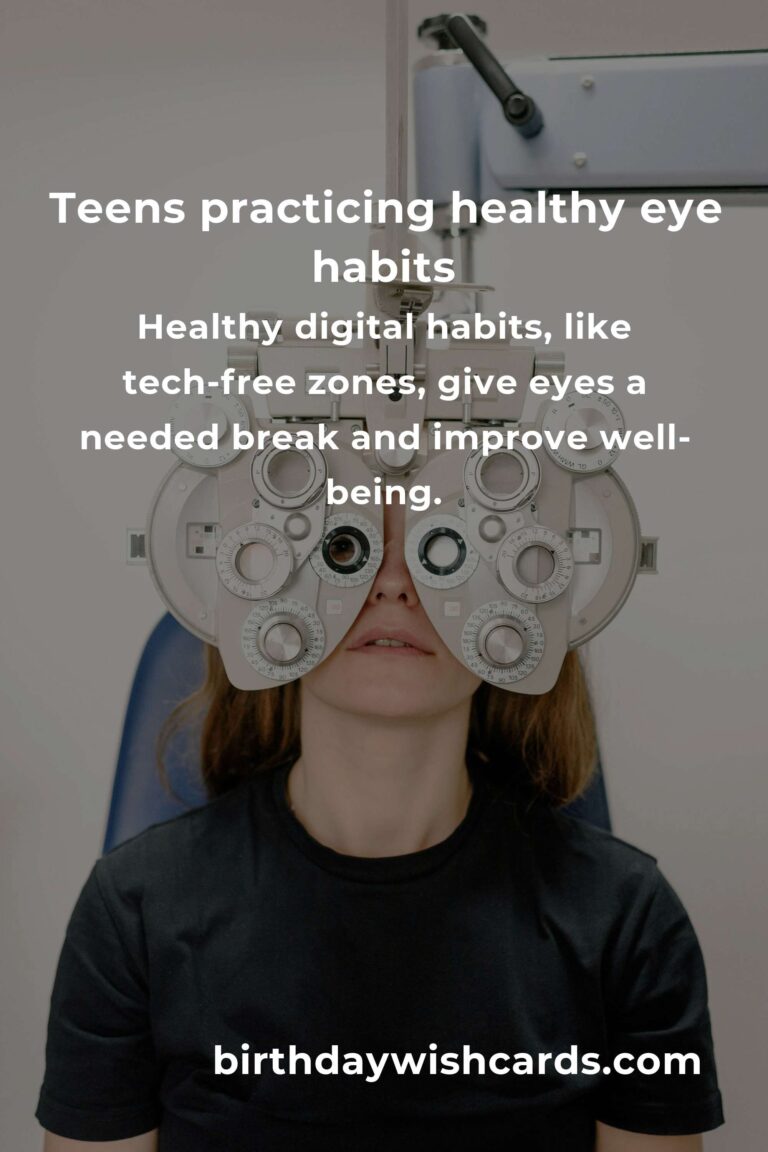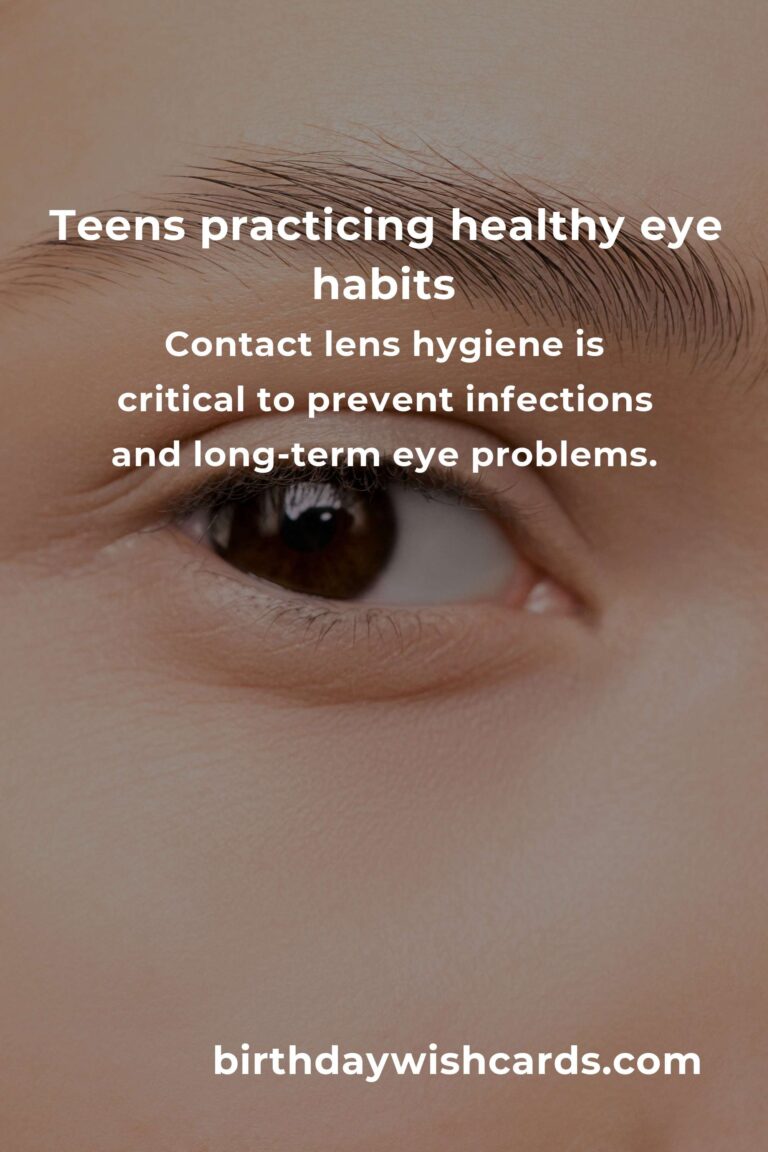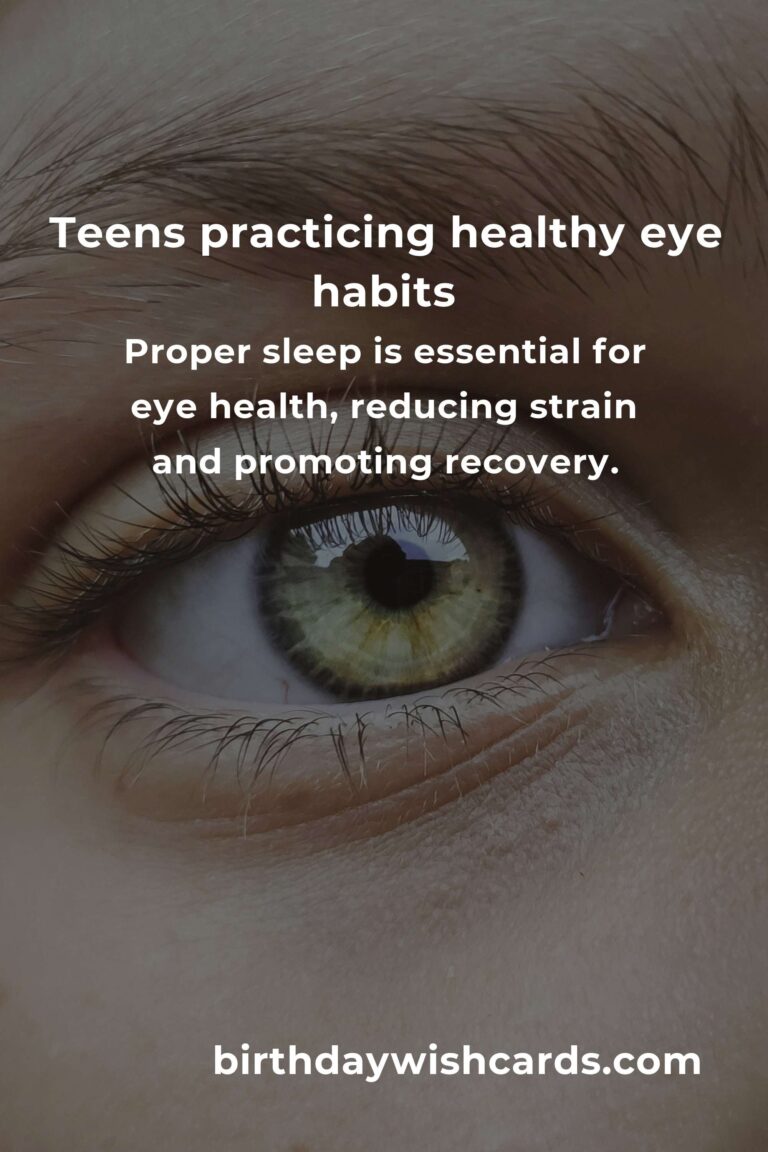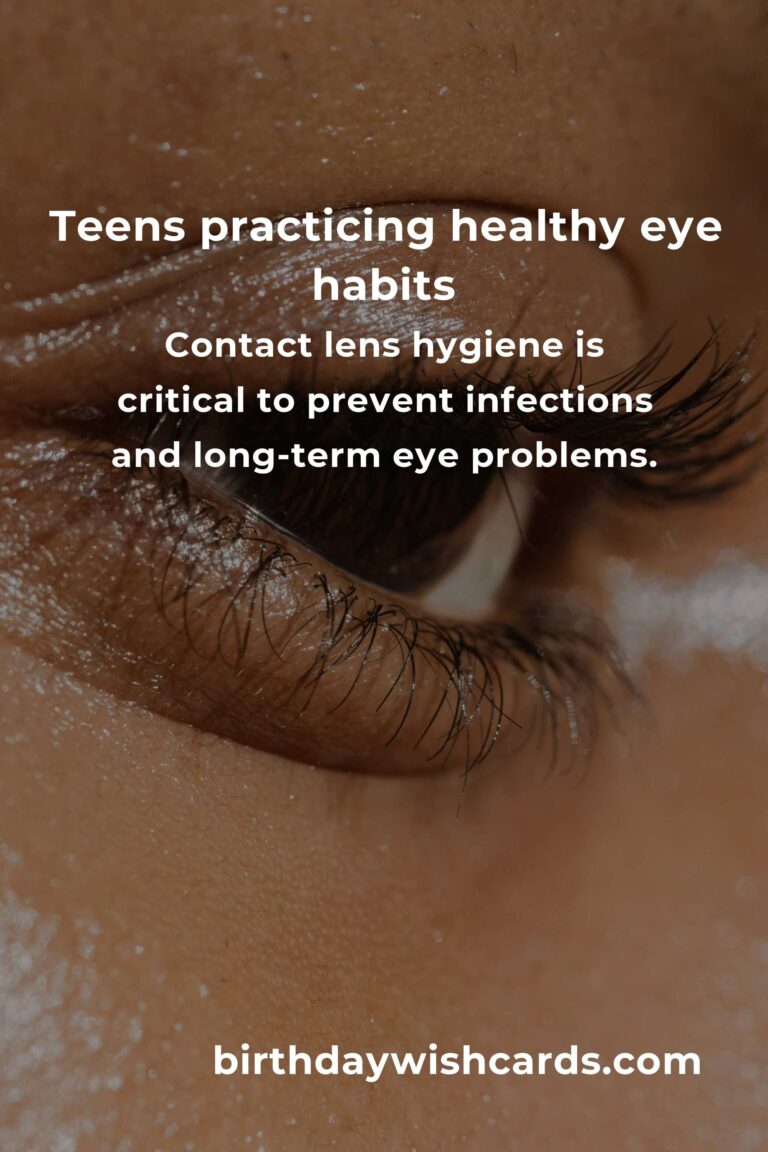
Our eyes are windows to the world, allowing us to learn, connect, and experience the beauty around us. For teenagers, safeguarding eye health is more important than ever before. In our digital age, teens spend countless hours in front of screens for schoolwork, socializing, and entertainment. This increased screen time, combined with busy lifestyles and environmental factors, can put a strain on young eyes. But the good news? Improving and protecting eye health is entirely within reach. Read on for a comprehensive guide packed with practical strategies, expert insights, and emotional encouragement to help teens care for their vision today and for years to come.
Why Eye Health Matters for Teens
Teenage years are a period of rapid growth and development, and eye health is no exception. Good vision is crucial for academic success, sports performance, social confidence, and overall well-being. Unfortunately, many teens overlook eye care until problems arise. By taking action early, teens can prevent future vision issues, boost their quality of life, and feel more confident in everything they do.
Common Eye Problems in Teens
- n
- Digital Eye Strain: Extended screen time can cause headaches, blurry vision, and dry eyes.
- Refractive Errors: Nearsightedness (myopia), farsightedness (hyperopia), and astigmatism are increasingly common.
- Eye Infections: Contact lens misuse or poor hygiene can lead to infections like conjunctivitis (pink eye).
- Allergies: Itchy, watery eyes from environmental allergens are frequent complaints.
- UV Damage: Unprotected sun exposure can harm the eyes over time.
n
n
n
n
Understanding these problems is the first step toward prevention and good eye health.
1. Take Regular Screen Breaks
With the rise of online classes, video games, and social media, teens are spending more time than ever in front of digital screens. This can lead to digital eye strain, causing discomfort and even affecting school performance. The solution? Practice the 20-20-20 rule: Every 20 minutes, look at something 20 feet away for at least 20 seconds. This simple habit can give your eyes a much-needed break and help prevent fatigue.
2. Keep a Healthy Distance
Sitting too close to screens can force your eyes to work harder. Ideally, your computer screen should be about an arm’s length away, and your device should be at or just below eye level. Adjust the brightness and contrast to comfortable levels, and avoid using screens in dark rooms to reduce eye strain.
3. Blink Often and Stay Hydrated
When we focus on screens, we tend to blink less—sometimes as little as five times per minute compared to the normal 15. This can lead to dry, irritated eyes. Remind yourself to blink regularly, and drink plenty of water to keep your eyes and body hydrated.
4. Eat a Vision-Boosting Diet
Nutrition plays a significant role in eye health. Encourage teens to eat a balanced diet rich in:
- n
- Vitamin A: Found in carrots, sweet potatoes, and leafy greens, it helps protect the cornea and prevent night blindness.
- Omega-3 Fatty Acids: Present in fish like salmon and flaxseed, they help reduce dry eyes.
- Lutein and Zeaxanthin: Found in spinach, kale, and eggs, these antioxidants filter harmful blue light.
- Vitamin C & E: Citrus fruits, nuts, and seeds help protect the eyes from damage.
n
n
n
Snacking on fruits, veggies, and nuts instead of processed foods can make a real difference in how your eyes feel and function.
5. Wear Sunglasses Outdoors
Ultraviolet (UV) rays from the sun can damage the eyes, increasing the risk of cataracts and other issues later in life. Teens should wear sunglasses that block 100% of UVA and UVB rays whenever they’re outside—even on cloudy days. A hat with a brim can provide extra protection.
6. Practice Good Contact Lens Hygiene
If you wear contact lenses, always wash your hands before handling them, use a fresh solution each time, and never sleep in your lenses unless your eye doctor says it’s okay. Replace lenses as recommended, and never share them with others. Poor hygiene can lead to serious infections and long-term damage.
7. Don’t Ignore Eye Discomfort
It’s easy to brush off red, itchy, or sore eyes, but these symptoms can signal bigger problems. If you notice persistent discomfort, changes in vision, or increased sensitivity to light, see an eye doctor. Early intervention can prevent more serious issues down the road.
8. Get Regular Eye Exams
Even if you think your vision is fine, regular eye exams are essential. Eye doctors can catch problems early—often before you notice symptoms. Teens should have a comprehensive eye exam every one to two years, or more often if recommended by a healthcare professional.
9. Use Eye Protection During Sports and Activities
Teens who play sports, especially contact sports or those involving flying objects (like baseball, hockey, or racquet sports), should wear protective eyewear. Safety glasses or goggles can prevent injuries that could have lifelong consequences.
10. Manage Allergies and Environmental Factors
If you suffer from allergies, keep windows closed during high pollen seasons, use air purifiers, and avoid rubbing your eyes. Over-the-counter allergy drops or medications can also provide relief—but always consult with a doctor before starting new treatments.
11. Be Mindful of Makeup and Personal Care Products
For teens who wear makeup, avoid sharing products and always remove makeup before sleeping. Replace mascara and eyeliner every three months to prevent bacterial growth. Be cautious with any product that comes near your eyes.
12. Get Enough Sleep
Sleep is crucial for eye health. Tired eyes are more prone to dryness, irritation, and strain. Aim for at least 8–10 hours of sleep per night to help your eyes recover from daily stressors.
13. Foster Healthy Digital Habits
Encourage teens to set limits on recreational screen time. Designate tech-free zones (like the dinner table or bedroom before bed) and foster offline hobbies. Remember, your eyes need time away from screens just as much as your mind does.
14. Know Your Family History
Some eye conditions, like glaucoma or myopia, can run in families. Talk to your parents about any vision problems in your family history, and share this information with your eye doctor to ensure you get the right care.
15. Cultivate Confidence and Self-Awareness
Taking care of your eyes isn’t just about vision—it’s about self-respect and confidence. When you care for your eyes, you’re investing in your future, your independence, and your happiness. Don’t be afraid to speak up if something doesn’t feel right, and encourage your friends to do the same.
Emotional Impact: How Healthy Vision Changes Everything
Clear vision isn’t just a physical advantage—it’s an emotional one. When you see clearly, you participate more fully in class, sports, and social activities. Healthy eyes can boost your self-esteem, help you make deeper connections with others, and support your dreams and ambitions. Prioritizing eye health is a powerful act of self-care that will pay off for the rest of your life.
Frequently Asked Questions
- How much screen time is safe for teens? Experts recommend limiting recreational screen time to under two hours per day, but school and homework may require more. Remember to take frequent breaks!
- What foods are best for eye health? Foods rich in vitamin A, C, E, omega-3s, and antioxidants—like carrots, leafy greens, eggs, and fish—are excellent for eye health.
- Is it okay to wear non-prescription colored contacts? Only use contact lenses prescribed by an eye doctor. Non-prescription lenses can lead to serious infections.
- How often should teens get their eyes checked? At least every one to two years, or as advised by your eye doctor.
Conclusion: A Clearer Tomorrow Starts Today
Eye health is a lifelong journey, and the habits you build in your teen years set the foundation for a future filled with clear, vibrant vision. By making small, consistent changes—like taking screen breaks, eating well, wearing sunglasses, and getting regular eye exams—you can protect your eyes and empower yourself for all the adventures ahead. Remember, your eyes are precious. Treat them with the care and respect they deserve, and encourage those around you to do the same. Here’s to a bright future—seen clearly!
Teens can protect their eyes by taking regular breaks from screens and following the 20-20-20 rule.
Eating a balanced diet rich in vitamins and antioxidants supports healthy vision.
Wearing sunglasses outdoors protects eyes from harmful UV rays and reduces future risk of damage.
Contact lens hygiene is critical to prevent infections and long-term eye problems.
Regular eye exams help detect issues early, often before symptoms appear.
Proper sleep is essential for eye health, reducing strain and promoting recovery.
Protective eyewear during sports can prevent serious eye injuries in teens.
Managing allergies and avoiding eye rubbing reduces irritation and potential harm.
Healthy digital habits, like tech-free zones, give eyes a needed break and improve well-being.
Taking care of your eyes boosts confidence, self-esteem, and sets the stage for lifelong vision health.
#TeenEyeHealth #HealthyVision #ScreenTimeBreaks #ProtectYourEyes #EyeCareTips #ClearVision #WellnessForTeens #YouthHealth #SeeTheFuture #VisionMatters


